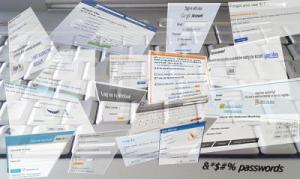 With my blog audience all being experts in the IT industry (I presume), I think we are all too familiar with the problems of classic password security mechanisms.
With my blog audience all being experts in the IT industry (I presume), I think we are all too familiar with the problems of classic password security mechanisms.
Humans are just not good at remembering long meaningless strings of tokens, especially if they need to be changed every so many months and having to keep track of many of those at the same time.
Some security experts blame humans. They say you should create strong passwords, not use a single password for different purposes, not write them down on paper – or worse – in an unencrypted form somewhere on your computer.
I disagree. I think the fundamental problem is within information technology itself. We invented computers to make life easier for ourselves – well, actually, that’s not true, ironically we invented them primarily to break military encryption codes. But the widespread adoption of computing happened because of the promise of making our lives easier.
I myself use a password manager (KeePass) to make my life a bit easier. There are many password manager tools available, and they solve part of the problem: keeping track of what password was used for what purpose. I now only need to remember one (hopefully, strong enough) password to access the password database and from there I just use the tool to log me in to websites, corporate networks and other services (let’s refer to all of those as “cloud servers”).
The many problems with passwords
The fundamental problem remains – even when using a password manager: passwords are no good for protecting our sensitive data or identity.

